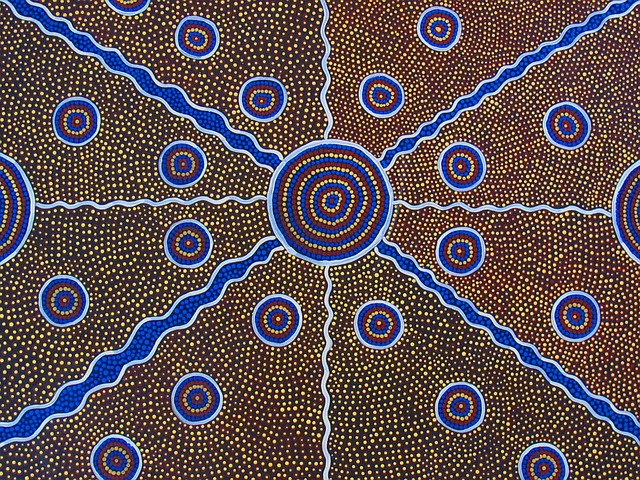Shame is internalized when one is abandoned.
John Bradshaw
Shame is a powerful sense of inferiority or a feeling that you are less than another being. Shame is internalized into every fabric of our being, and it ruins our lives. When we dislike something about ourselves, there is usually shame lying behind it.
When we feel shame, we hear negative voices inside our head telling us we should be ashamed of ourselves. These thoughts can become obsessive. This chapter explains techniques to overcome those negative inner voices.
Why do we feel Shame
Shame is not an emotion with which you were born. It was created at some stage in your childhood. Shame was created when you felt neglected, abandoned or abused. You received the message that you were not a person of value, and shame developed. You grew up believing those messages were true. People without a solid sense of value and self-love tend to attract abuse and neglect into their lives. They attract the very thing that they feel inside. It is as if the outside world reflects their inner world.
Some instances of how shame may have manifested in your life are as follows:
-
You were abandoned physically, mentally or emotionally
-
You were not supervised
-
You were not properly nurtured (mentally, physically or emotionally)
-
You did not receive enough affection and touch
-
You were abused physically, mentally or emotionally
-
Your success was not acknowledged or was attacked
-
Disapproval was aimed at your entire being, not just particular behaviors
-
Your boundaries were violated
As a child, we all had an innate need to be loved. If you were abandoned, then there must have been a reason. If you were hit, then there must have been a reason. As a child, you were not rational. You could not understand that Daddy left because it was all too difficult for him, and he was not coping. You may have decided, consciously or subconsciously, that he left because of you. If your mother worked long hours and was never home, you may have decided that she did not love you. If you were neglected, you might have believed you were not worth their care.
How do we feel Shame
Have you ever felt dirty inside? Have you ever felt less than another person? Do you believe you are stupid? Do you hear a person’s words and perceive them to mean you are not loved? Do you believe you are inadequate in dealing with daily life?
A sense of abandonment and rejection feeds the shame. You might be a perfectionist because mistakes bring up your feelings of shame. You might sink into pessimism and depression. You become a victim of life, wherein, life happens to you rather than you taking control of your life. You develop addictions to ease your pain because it temporarily makes you feel stronger, better or wittier. Addictions may include food, medication, alcohol, drugs, sex, etc.—the list is endless. You procrastinate in making life plans because you think you are unworthy of making the effort.
The Healing in the Story
I was honored to meet Judy Atkinson, a professor and researcher on the subject of trauma, in Australia some years back. We discussed her book, Trauma Trails: Recreating Song Lines. Dr. Atkinson is part aboriginal; of Jiman and Bundjalung descent, and she also claims a Celtic-German heritage. Dr. Atkinson has worked in the area of violence and trauma for many years, and she has worked with the indigenous communities of Australia. Addiction is a massive problem in many of these communities. Dr. Atkinson sees the impact of inter-generational trauma every day in her work and research.
In her book, Dr. Atkinson describes a culturally appropriate research approach called Dadirri or listening to one another. She believes one of the answers to healing trauma is found in storytelling. We feel shame when we are isolated and misunderstood. When we sit in a group and tell our story, we are heard and connected to others. Listening to the stories of others, learning from them and in turn having one’s own story validated is a profound method of healing. This is why I believe 12 Step groups such as AA, Al Anon and Gamblers Anonymous are so popular and effective.
Exercise: Telling Your Story and the Shame within it with the Tarot cards
You will need: A deck of Tarot cards, journal and pen and/or voice recorder. You can also use an Oracle deck but they must contain some cards that represent life’s challenges.
I recommend that you gather a small group of women – no more than 6. (If you are a women you may feel safer in a group of women when telling your story). This group could be ongoing where you all get to hear each others stories. This technique is obviously more powerful is a group setting because you are revealing yourself and learning that you are still loved and not judged. If you have a group of women, it is imperative that THEY do NOT make comments as you speak. The idea is that they listen with love and attention and hold the space for you.
If you can only find one person then this technique will also work.
For some of you this may not be possible or you might not feel ready to share your shame with others. Therefore my advice is that you can do this technique by talking to a photograph of someone you feel loved, cared for and held by. This photograph could be a loved friend, a family member or someone whose presence nurtures you. Stick the picture to a chair. You can sit on another chair opposite this photo.
For some of you even this might feel uncomfortable and I would then advise that you stick a picture of yourself on the opposite chair. You might find it works in stages…first you tell your own photograph your story, then another time you tell your life story and its shame to the photograph of a loved one. Then perhaps later you feel safe to share it with a loved one. Then one day perhaps you will feel safe to talk about it in a supportive group.
So whether you are in a small group of trusted loving women, or on your own this Tarot technique can work.
Lets begin…
Sit quietly and shuffle your Tarot deck.
Ask the question….. ‘Tell me the story of my shame’. When you are ready pull as many cards as you need. Go with your intuition. If you are not sure of your intuition, a good number of cards would be around 5 or 6. Lay out the cards face downwards. Do not turn them yet….
Begin to tell your story. Begin to talk about the pain in the past. Your story might begin from birth or it may be a particular event. It could be a series of events that led to more and more shame and anxiety. You might not know of any events but rather just feel you are less than with no confidence. Talk to your loved ones, support group or photograph about the shame you carry inside. The doubts, the fears and the hidden pain. About not feeling good enough…not feeling ‘….’ enough…
When you feel ready, turn over the Tarot cards. These cards will tell you how Shame has impacted your life.
Look at each card, hold it up close to your eyes. Then put the card to your heart, close your eyes and say one word, feeling or sentence that you feel this card represents about you.
Then move onto the next card.
Take your time doing this process. Do not rush.
If you are in a group, get another person to record what you say. Or choose to record yourself on the voice recorder on your smart phone or other device.
The next step is to return the cards and shuffle well. Hand the deck to the listeners. (if you are alone, then you will do this next part yourself also). Each listener will ask the question, “How can ‘your name’ let go of her Shame?’ and they pull a card for you. They describe what they think you need to do to heal your Shame. Even if they do not know Tarot or Oracle cards the message/picture will give them guidance.
If you are alone you can ask the question yourself, “How can I let go of my Shame?” and pull as many cards as you need. I would advise not pulling more than 6 so it does not get overwhelming or confusing.
Telling our story, especially when others can hear it, is incredibly transforming. To have others listen to our story without judgement or criticism is such a gift. Also if we hear other peoples stories we come to understand that we are not alone and that we all share common feelings and emotions. I have personally found some of the greatest healing for myself has come from sitting in women’s groups and listening to the stories and the voices – crying with them, holding each other and accepting ourselves for who we are.
The Tarot cards are a tool that can enrich this experience because they are such an incredible tool for transformation.
So I hope you will consider this exercise as one that can bring you love, acceptance and awareness.











